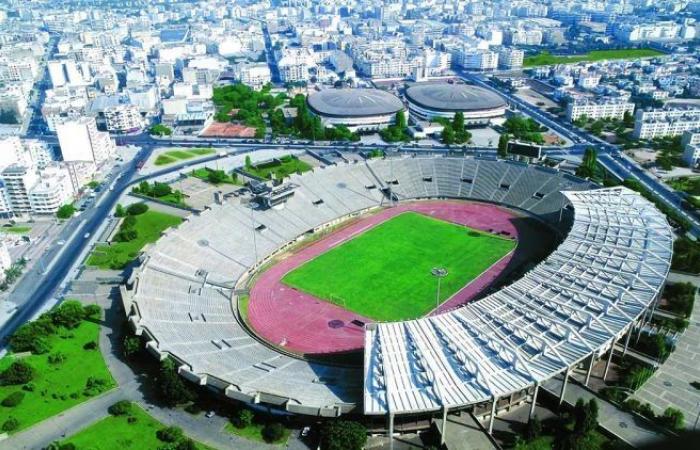Morocco is today asserting itself as a major player in attracting foreign investments, with a strategic vision aimed at stimulating economic growth and positioning the Kingdom as an essential investment platform in Africa and the Arab world. This ambition is part of the Investment Charter, initiated in 2022 by King Mohammed VI, whose objectives aim to revitalize private investments, particularly in innovative and high-potential sectors.
The Investment Charter plan sets ambitious objectives: increasing the share of private investment from 33% to 66% by 2035, a significant leap in terms of financial commitment and participation of private actors to national growth. The Kingdom aims to attract a private investment volume of $33 billion by this deadline. Since the launch of this charter, encouraging signs have already been felt, with around $15 billion in investment projects interested in Moroccan opportunities. This dynamic promises a more solid and attractive economic future, supported by structural reforms and specific incentives.
The Moroccan Association of Equity Investors highlights the progress recorded: in fifteen years, investor financing in Morocco has totaled $1.07 billion, spread across 250 companies. Morocco, which was able to capture an additional 100 million dollars in 2024 compared to the previous year, demonstrates a growing capacity to attract funds and stimulate its private sector. This trend should bring significant economic benefits, in particular by consolidating financing resources, a major challenge for many Moroccan companies still limited by their own funds.
As a result, Morocco is positioning itself as a future player in the financial markets, anticipating significant growth in publicly traded companies. From 77 currently, this number could reach more than 300 by 2035 if the strategy proceeds as planned, supported by an investor-friendly tax environment. According to Standard & Poor’s forecasts, the Moroccan economy could grow by 3.6% between 2024 and 2027, a rate which would strengthen the country’s attractiveness to international investors.
Read also: FIFA ranking: Morocco rises to 13th in the world
Favorable taxation to attract capital and FIFA
The implementation of tax incentives is also part of Morocco’s development strategy. In the sports field, the government has distinguished itself with a series of tax measures intended to attract the Fédération Internationale de Football Association (FIFA), as part of its regional expansion in view of the 2030 World Cup. Morocco, in collaboration with Spain and Portugal, will be one of the host countries of this event, a large-scale project for the Kingdom.
Tax incentives include full exemption from corporate tax, social charges, VAT, as well as registration fees for all FIFA activities in Morocco. Income from shares and other financial investments made on Moroccan territory and distributed to FIFA also benefits from an exemption from withholding tax. In addition, purchases of goods, services and materials necessary for FIFA’s operations in Morocco are exempt from VAT, thus facilitating the organization’s activities.
This tax strategy is designed to meet the needs of FIFA, with around 300 employees who will be based in Rabat until the 2030 tournament. This initiative positions Morocco as a preferred partner for major sports organizations, while strengthening its role in as a regional center for football training and development.
A regional training center for football development
The government also intends to develop a regional football training center for coaches and specialists in VAR technology. Under the supervision of Deputy Minister Fouzi Lekjaa, also president of the Royal Moroccan Football Federation (FRMF), this center aims to become a pole of attraction for sporting talents in Africa and around the world. Official certifications will be issued within this framework, thus increasing the visibility and attractiveness of Morocco for sports-related investments.
Morocco thus demonstrates its desire to position itself as a major player in world football, by capitalizing on the advantages of a partnership with FIFA. By facilitating tax and administrative procedures, the Kingdom is putting forward a proactive approach to attracting foreign talent and investment, while supporting the development of its own sports sector.
The Investment Charter and associated initiatives reflect Morocco’s ambition to diversify its economy and strengthen its international competitiveness. The orientation towards investment funds, encouraged by the president of the General Confederation of Moroccan Enterprises (CGEM), Chakib Alj, illustrates this strategic turn towards a more competitive market economy and more open to foreign partnerships. Morocco’s ability to forge local and international alliances through these mechanisms gives it a significant competitive advantage in an increasingly globalized economic world.
The Kingdom is therefore scoring points in its quest to become an attractive platform for investors from various backgrounds. By focusing on advantageous taxation, a developing sports infrastructure and ambitious growth and stock market listing objectives, Morocco is giving itself the means to achieve its ambitions and intends to play a central role in the region.






